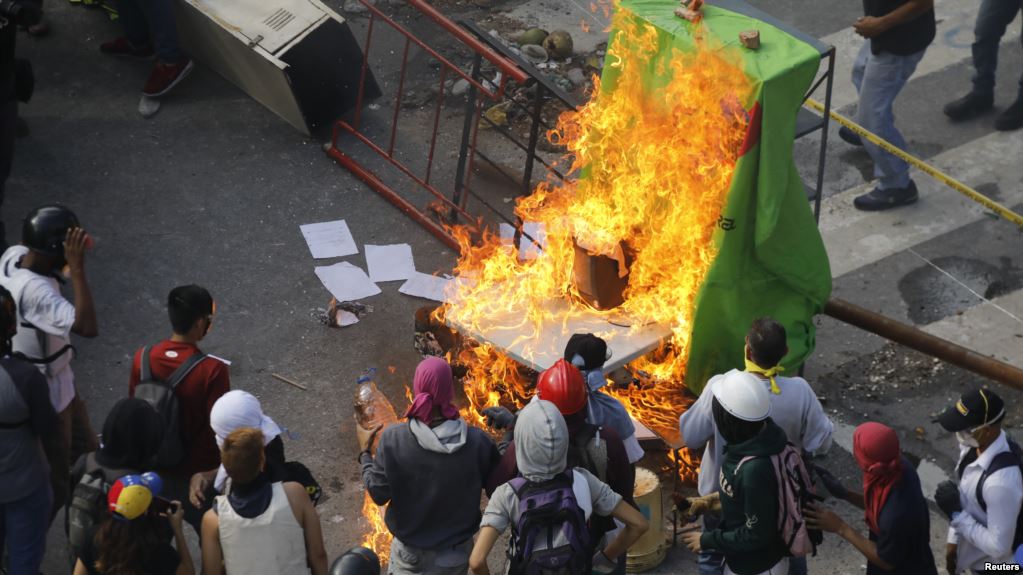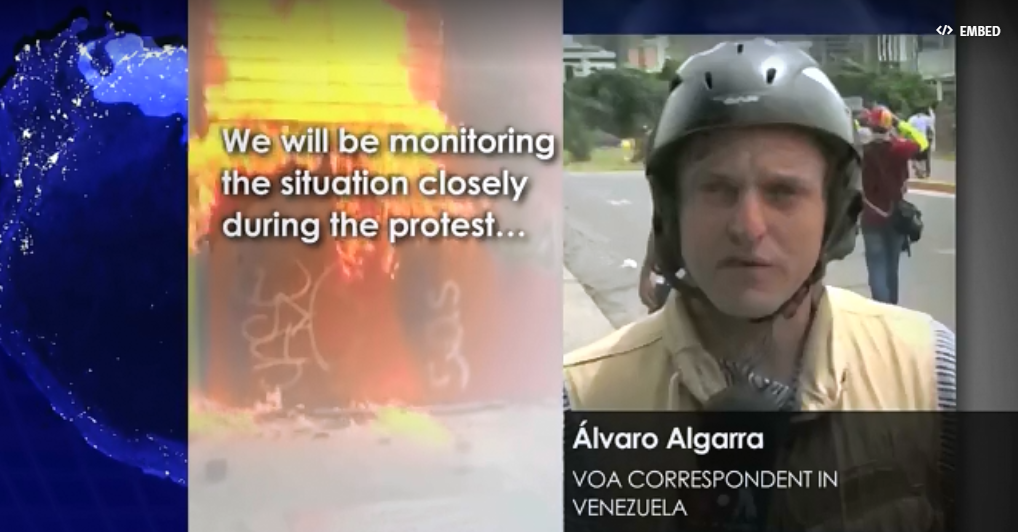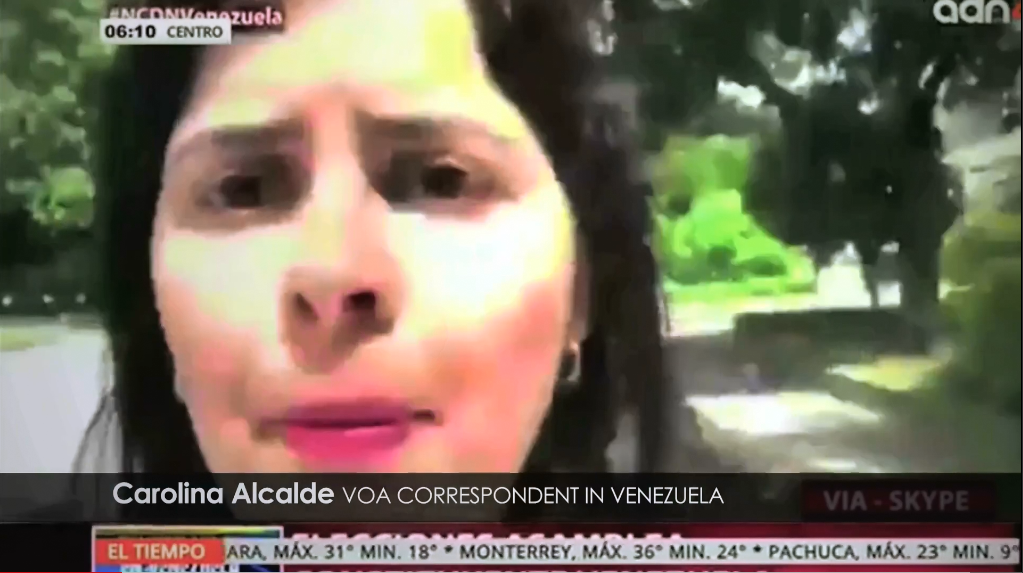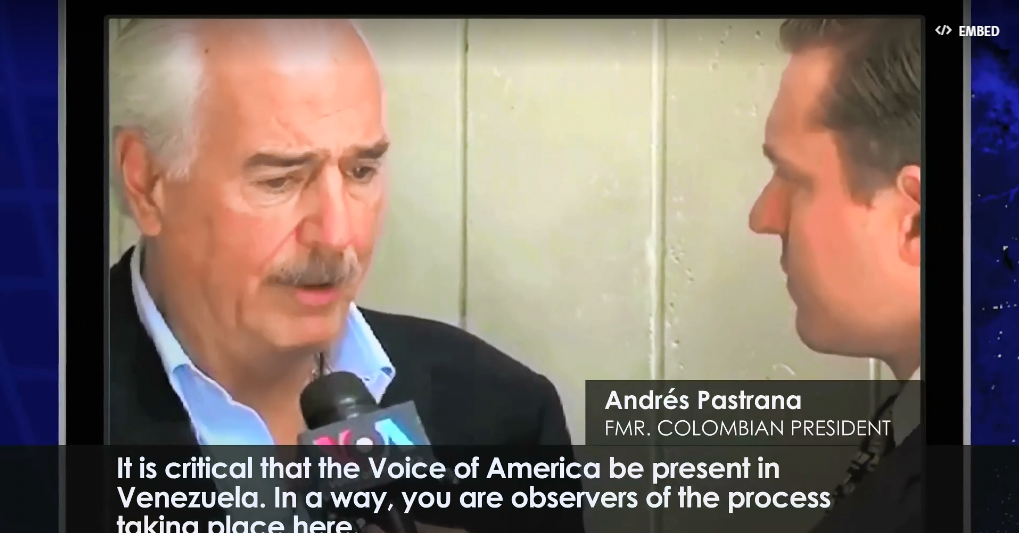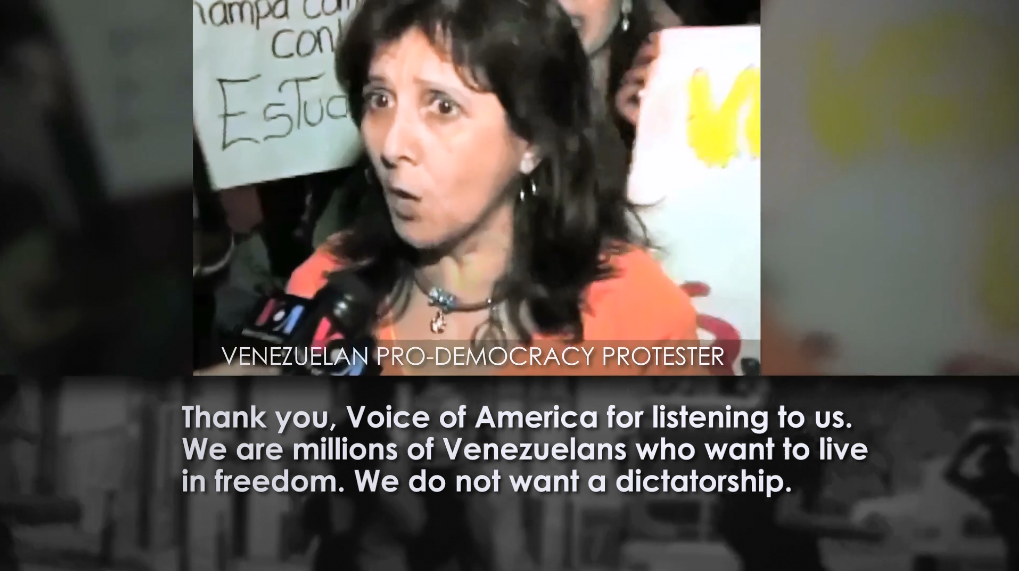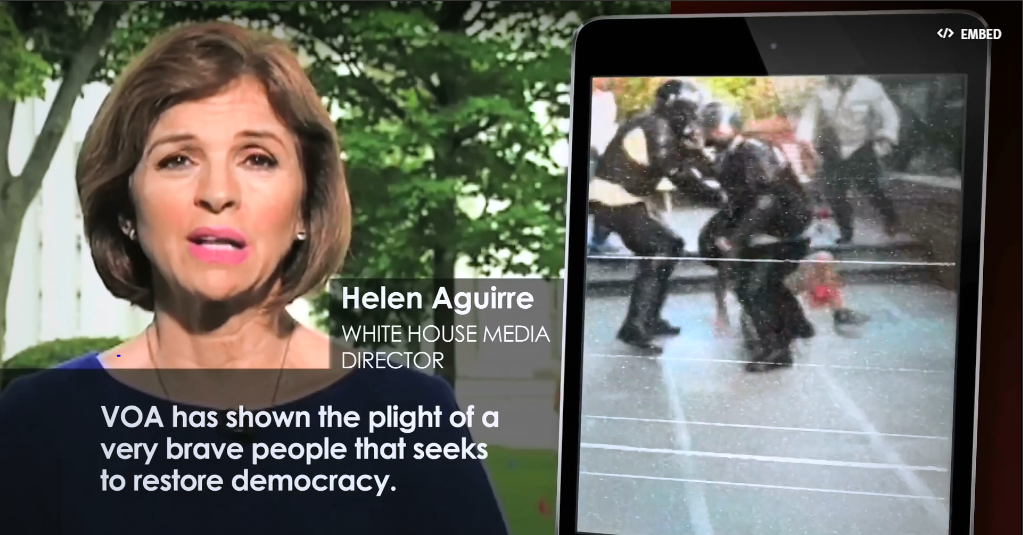VOA Spanish has helped shape local and regional coverage in Latin America by providing much-needed accurate and timely news of the rapidly deteriorating situation in Venezuela. As protests multiplied, VOA expanded on the ground coverage, airtime, and staff devoted to the story. VOA worked with 99 media partners in Venezuela, providing hundreds of television and radio packages as well as extensive social media coverage. Content included information about political repression, economic turmoil, growing humanitarian crises, and the Venezuelan diaspora, as well as how events were being received in the United States, including in Congress. VOA also provided coverage for hundreds of affiliate stations throughout the rest of Latin America, where audiences have a stake in following the Venezuelan story.
VOA journalists faced multiple incidents of harassment and intimidation while on the job. Alvaro Algarra was surrounded by over 20 armed, hooded thugs on motorcycles while covering a demonstration in Caracas. During a siege of Venezuela’s parliament by pro-government and armed groups, Mr. Algarra was detained for nine hours but reported throughout. Reporter Carolina Alcalde was harassed by police while covering the Constituent Assembly elections.
VOA facilitated collaboration among local reporters and media and put a spotlight on the despair and hopes of hundreds of thousands of Venezuelans who fled the country. On a bridge linking Venezuela and Colombia, VOA’s Celia Mendoza interviewed a young man who barely escaped with his life after being shot at by Venezuelan guards. From Curaçao, she reported on the risks of crossing the dangerous waters for refuge on the island.
In a series of Facebook Live reports, Mendoza spoke with a victim of human traffickeing. The woman said she thought she was being hired as a waitress but instead was forced into prostitution. Mendoza spoke to another woman who gave birth in Cucuta following a harrowing night feeling Tachira. The two stories attracted more than 200,000 views.
